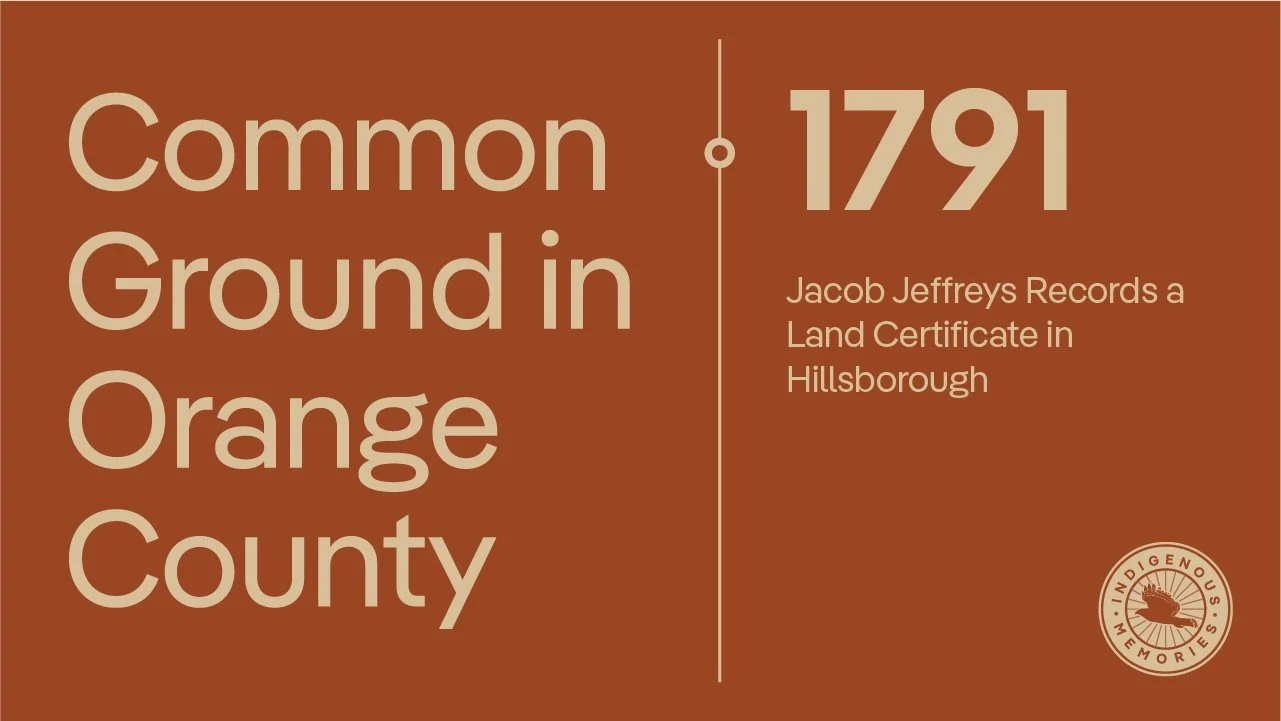
1791
JACOB JEFFRIES RECORDED A LAND CERTIFICATE IN HILLSBOROUGH
In 1791, Jacob Jeffries, a veteran of the Revolutionary War, officially recorded a land certificate in Hillsborough, solidifying a claim to property as reward for service.
Jeffries’ claim to land underscores the complex relationship between the indigenous people, the fledgling United States, and the ongoing struggle for identity and survival in a rapidly changing world.
The Occaneechi's participation in the Revolutionary War was multifaceted. While some may have fought alongside Patriot forces, motivated by promises of land and recognition, others might have sided with the British, hoping to regain lost autonomy and resist colonial expansion.
For those like Jacob Jeffries, who fought for the American cause, military service offered a path to secure land ownership and a degree of integration into the new nation. Land certificates were tangible proof of their contribution and a symbol of belonging.
“By the time of the Revolution, these individuals occupied a unique niche in colonial society,” said Lawrence Dunmore, a historian of the Occaneechi Band of the Saponi Nation.
“They maintained that by serving as patriots and fighting in the Revolutionary War and receiving land patents for their service. It was a chance for them to benefit from what they did and also maintain their distinctiveness. They tended to settle near each other on their land so they could build their own distinct community.”
Yet, their presence in Orange County was not without its challenges. Land ownership provided a measure of stability but placed them in competition with white settlers, leading to disputes and further marginalization.
The Occaneechi faced ongoing prejudice and discrimination. Indigenous people were often conflated with free people of color and denied the full rights and recognition they deserved as a distinct people.
After peace was made with the Six Nations Iroquois in 1733, groups of indigenous people began to move North from our area to join other tribes.
“We are descended from those who stayed behind and became more acculturated, adopting the ways of the English,” Dunmore said. “By the time of the Revolutionary War, our people, though not white, weren't really seen as ‘Indian’ in the same way either. Many had intermarried.”
In fact, the land certificate that Jacob Jeffries received is made out to "Mulatto Jacob," revealing the complexities of racial categorization in colonial society. Despite his Occaneechi identity and service in the Revolutionary War, the prevailing system meant he was inaccurately classified based on European standards of the time.
Featuring Indigenous Memories Consultant, Lawrence Dunmore III

